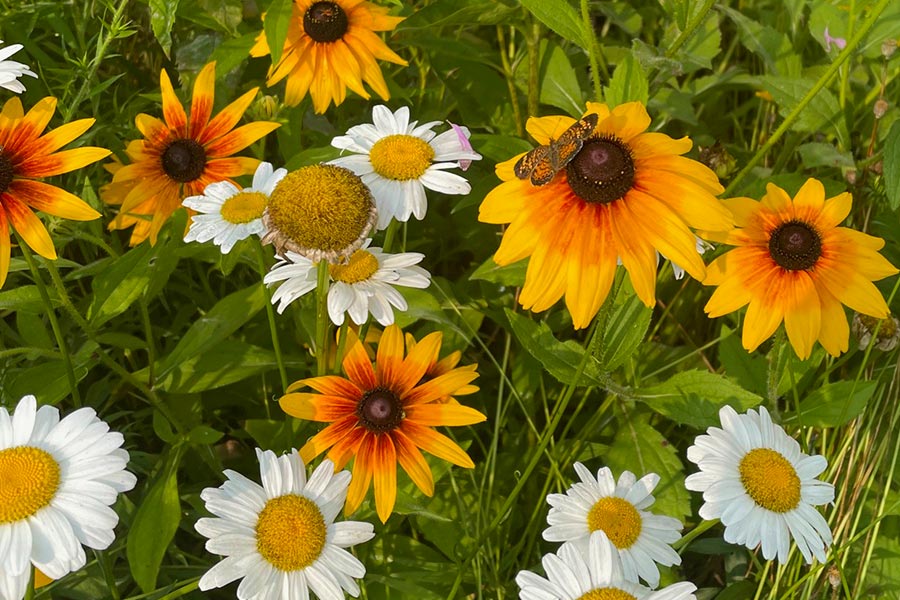A significant part of our sustainable landscape philosophy is the incorporation of native plant selections in our planting designs. What is a “native plant”? A simple definition states that a plant is native if it lives or grows naturally in a particular region without direct human intervention. So, native plants are those that evolved and adapted naturally in a specific geographical area prior to the introduction of plants from different places. They are an essential part of and provide greater benefits for our local habitats and ecosystems than non-native species.
Common natives found in the Pittsburgh region include:
Trees:
- Shadblow Serviceberry
- Blackgum
- Flowering Dogwood
Shrubs:
- Summersweet
- Smooth or Wild Hydrangea
- Common Buttonbush
Perennials:
- Oxeye Sunflower
- Blazing Star
- Black Eyed Susan
Natives are most beneficial to the environment when they are planted in areas that match their growth requirements. They are adapted to thrive in the weather, soils and moisture of our region. They require many less cultural inputs such as supplemental watering and chemical interventions to control pests and diseases.
The inclusion of native species in our landscape designs is a simple way of providing the vital habitat components of water, food, cover and protection from predators while developing a garden space that’s aesthetically appealing and enhances the natural landscape. Certainly, natives are the backbone species of any resilient pollinator, rain or bird garden.
Well-designed plantings that incorporate natives provide benefits for the local ecosystem as well as being a source of beauty and pleasure in your home garden spaces.
Check out some of our recent work incorporating native plants and rain gardens into homeowner’s yards. If you want to learn more about native plants, check out our “The Native vs. Nativar Debate: Cultivating a Greener Landscape” blog post. Get in touch with us to discuss enhancing your landscaped areas with native species.





